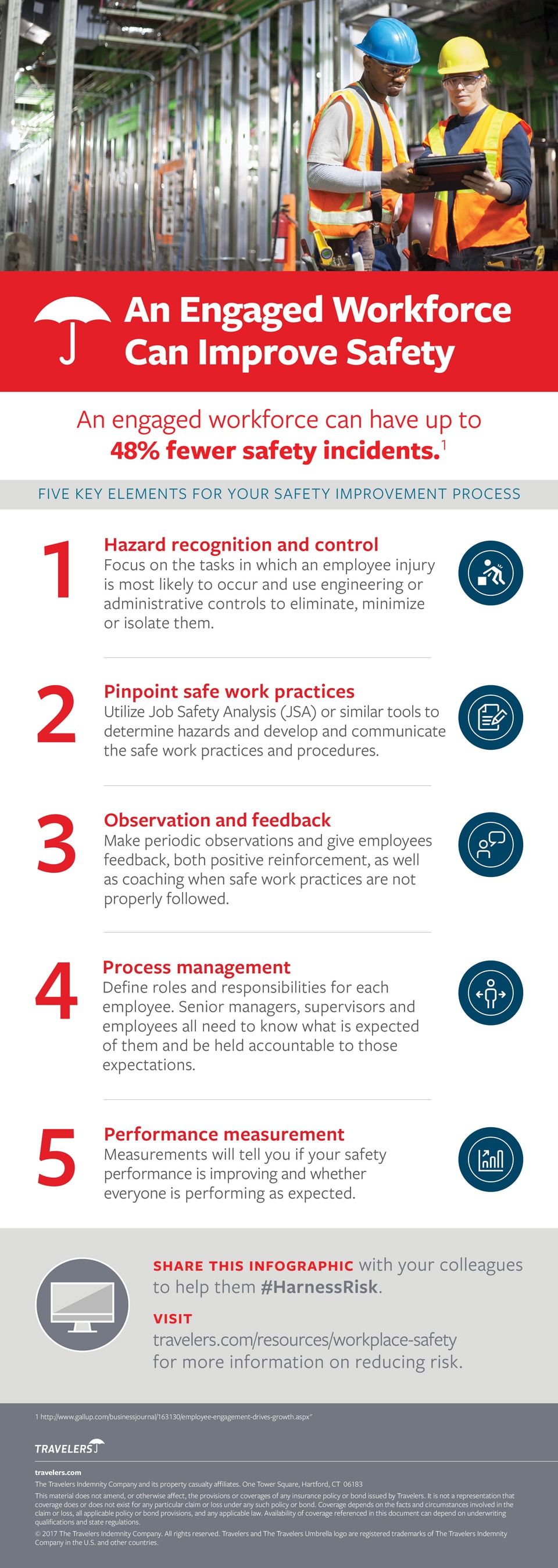Effective Middle Management: A Foundation For A Successful And Engaged Workforce

Table of Contents
Defining "Effective Middle Management"
Effective middle management goes beyond simply supervising employees. It encompasses a multifaceted approach characterized by strong leadership, exceptional communication skills, effective delegation, robust performance management, and a genuine commitment to employee development. Effective middle managers are not just managers; they are leaders who inspire, motivate, and empower their teams to achieve shared objectives. They serve as a conduit for information, translating the strategic directives from upper management into actionable plans for their teams, while simultaneously providing crucial feedback from the ground up.
Fostering Effective Communication and Collaboration
Effective communication and collaboration are the cornerstones of a high-performing team. Middle managers play a pivotal role in creating an environment where these flourish.
Transparent Communication Strategies
Open communication channels are paramount. Middle managers must ensure information flows freely and consistently. This involves:
- Implementing regular team meetings: These meetings should be structured to allow for open dialogue, updates on projects, and opportunities for feedback.
- Utilizing collaborative tools: Platforms like Slack, Microsoft Teams, and project management software facilitate seamless communication and information sharing.
- Encouraging open-door policies: Creating a culture of accessibility encourages employees to approach their managers with questions, concerns, and ideas.
- Actively soliciting employee feedback: Regular feedback mechanisms, such as surveys, one-on-one meetings, and suggestion boxes, ensure that employee voices are heard and valued. This fosters a sense of psychological safety. These communication strategies are vital for transparency and successful collaboration.
Building Strong Working Relationships
Beyond communication, effective middle managers invest in building strong, trusting relationships with their team members. This involves:
- Investing time in getting to know team members individually: Understanding individual needs, strengths, and weaknesses is crucial for effective leadership and support.
- Providing regular coaching and mentorship: Guiding and supporting employees' professional development fosters loyalty and commitment.
- Recognizing and rewarding achievements: Public acknowledgment and appreciation build morale and motivation.
- Actively addressing conflict: Proactive conflict resolution prevents small issues from escalating into larger problems that damage team building and rapport.
Empowering and Developing Employees
Empowered employees are engaged employees. Effective middle managers understand this and actively work to create an environment where employees feel ownership and responsibility.
Delegation and Empowerment Techniques
Effective delegation is more than just assigning tasks; it's about empowering employees to take ownership. This requires:
- Clearly defining roles and responsibilities: Ensuring everyone understands their contribution to the bigger picture minimizes confusion and maximizes efficiency.
- Providing sufficient training and resources: Equipping employees with the necessary skills and tools allows them to succeed independently.
- Trusting employees to complete tasks independently: Micromanagement stifles creativity and initiative. Trust fosters independence and accountability.
- Providing regular check-ins and support: Offering guidance and support without excessive oversight demonstrates trust and fosters a collaborative relationship. This boosts employee training, facilitates better task management, and increases feelings of ownership and accountability.
Investing in Employee Growth and Development
Investing in employee development is an investment in the future of the organization. Effective middle managers prioritize:
- Offering training programs: Providing opportunities for skill enhancement keeps employees engaged and prepared for future challenges.
- Mentorship opportunities: Pairing experienced employees with newer ones fosters knowledge transfer and accelerates professional growth.
- Encouraging participation in conferences and workshops: Exposure to new ideas and best practices expands employees’ skillsets and perspectives.
- Providing regular performance reviews with development plans: Constructive feedback and clear development plans provide a roadmap for career advancement. This promotes employee development and facilitates professional growth and career advancement.
Driving Performance and Achieving Organizational Goals
Effective middle managers are not just focused on team morale; they are driven by results. They align team goals with overall organizational objectives, monitor performance closely, and provide constructive feedback to drive continuous improvement.
Setting Clear Goals and Expectations
Alignment is key. Middle managers need to:
- Clearly communicate company goals and objectives: Ensuring everyone understands the "why" behind the work increases buy-in and commitment.
- Establish SMART goals for teams and individuals: Specific, Measurable, Achievable, Relevant, and Time-bound goals provide clear direction and benchmarks for success.
- Regularly track progress and provide updates: Transparency regarding progress keeps the team focused and informed. This is crucial for performance management and aligning team efforts with organizational objectives.
Monitoring Performance and Providing Constructive Feedback
Performance management is an ongoing process. Middle managers must:
- Conduct regular performance reviews: Formal reviews offer opportunities for feedback, goal setting, and identification of areas for improvement.
- Conduct constructive feedback sessions: Regular, informal feedback keeps employees on track and addresses challenges proactively.
- Develop performance improvement plans: Addressing performance issues promptly prevents minor problems from becoming major ones.
- Recognize achievements: Celebrating successes reinforces positive behavior and motivates continued high performance. This is part of effective employee performance management.
Conclusion: The Power of Effective Middle Management
Effective middle management is not just about overseeing tasks; it's about fostering a culture of engagement, empowerment, and high performance. By implementing the strategies discussed – prioritizing open communication, empowering employees, and driving performance through effective goal setting and feedback – organizations can cultivate a more successful and engaged workforce. Invest in effective middle management training, develop your middle management team's leadership skills, and implement effective middle management strategies to boost employee engagement. Learn more about effective middle management techniques to improve your organization's performance. The long-term benefits of investing in effective middle management are undeniable – a more productive, engaged, and ultimately, more successful organization.

Featured Posts
-
 Trump To Pardon Pete Rose Examining The Baseball Legends Case
Apr 29, 2025
Trump To Pardon Pete Rose Examining The Baseball Legends Case
Apr 29, 2025 -
 Johnny Damon And Donald Trump Agree Pete Rose Should Be In Baseball Hall Of Fame
Apr 29, 2025
Johnny Damon And Donald Trump Agree Pete Rose Should Be In Baseball Hall Of Fame
Apr 29, 2025 -
 Where To Invest Mapping The Countrys Fastest Growing Business Areas
Apr 29, 2025
Where To Invest Mapping The Countrys Fastest Growing Business Areas
Apr 29, 2025 -
 Jan 6 Hearing Star Cassidy Hutchinson Announces Fall Book Release
Apr 29, 2025
Jan 6 Hearing Star Cassidy Hutchinson Announces Fall Book Release
Apr 29, 2025 -
 Nyt Spelling Bee February 10 2025 Solutions Answers And Pangram
Apr 29, 2025
Nyt Spelling Bee February 10 2025 Solutions Answers And Pangram
Apr 29, 2025
Latest Posts
-
 Returning To Favorites How You Tube Captures Older Viewers
Apr 29, 2025
Returning To Favorites How You Tube Captures Older Viewers
Apr 29, 2025 -
 You Tubes Growing Appeal To Older Viewers Nostalgia And New Discoveries
Apr 29, 2025
You Tubes Growing Appeal To Older Viewers Nostalgia And New Discoveries
Apr 29, 2025 -
 You Tube A New Home For Older Viewers Favorite Tv Shows
Apr 29, 2025
You Tube A New Home For Older Viewers Favorite Tv Shows
Apr 29, 2025 -
 How You Tube Is Attracting An Older Viewership
Apr 29, 2025
How You Tube Is Attracting An Older Viewership
Apr 29, 2025 -
 Trumps Potential Pardon Of Rose Analysis And Reactions
Apr 29, 2025
Trumps Potential Pardon Of Rose Analysis And Reactions
Apr 29, 2025
